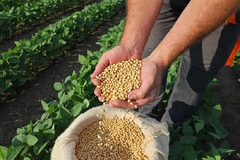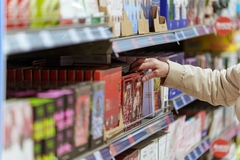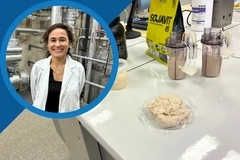
- Industry news
Industry news
- Category news
Category news
- Reports
- Key trends
- Multimedia
- Journal
- Events
- Suppliers
- Home
- Industry news
Industry news
- Category news
Category news
- Reports
- Key trends
- Multimedia
- Events
- Suppliers
COCERAL urges EUDR delays as soybean producers struggle to cover costs
Key takeaways
- The European grain and oilseed trade body urges the European Commission to postpone the EU Deforestation Regulation by one year, citing unresolved challenges and high compliance costs.
- COCERAL warns the current timeline could trigger feed and oil crushing plant closures, raise raw material prices, and increase reliance on imported finished products.
- SMEs face capital shortages to build segregated supply chains, while port and logistics infrastructure upgrades would require massive investment.

COCERAL, the European association representing the trade in agricultural commodities, is urging the European Commission to reconsider the timeline for implementing the EU Deforestation Regulation (EUDR), as it still “presents unresolved challenges that threaten the stability of the soybean supply chain.”
The association is calling for an additional one-year postponement to allow time to address critical issues and ensure a smooth transition for EU industries. The association slammed last week’s European Commission proposal calling for a fragmented implementation of timelines, which has created confusion in the market.
The commission proposed upholding the December 2025 EUDR start date for larger companies, and adding a six-month grace period, while delaying enforcement for smaller enterprises until the end of 2026. The proposal was met with mixed reactions from industry stakeholders.
COCERAL secretary general Iliana Axiotiades says the impact on the EU’s feed and meat industries could be severe. It could potentially force reliance on the imports of end products from non-EU countries, which would disadvantage EU producers.
In an interview with Food Ingredients First, Axiotiades calls for a more balanced proposal that considers how small and medium-sized businesses across the soybean sector, in particular, are faced with high costs in order to comply with the EUDR.
How does COCERAL envision a realistic implementation timeline for the EUDR that balances environmental goals with the operational realities of the food and feed sectors?
Axiotiade: The timeline would depend on the amendments to the regulation. The sooner it is amended to render its implementation more pragmatic, the shorter the time operators can be ready, depending on the extent to which the regulation’s implementation provisions are simplified.
Please expand on the pressure the EUDR will have on the food industry at large?
Axiotiade: The two sectors that will be mostly hit are the oil crushing and feed industries, which will further impact livestock and thus meat, milk, eggs, and such. A shortage of soybeans/soymeal will initially lead to a price increase, potentially even a supply shortage, and eventually to a replacement of the products produced in the EU by imports of finished products.
In the case of feed, one should expect further closures of feed plants and a general decline in total feed production. As for oil crushers, they will initially pay higher prices for their raw material and logically pass at least some of it to their customers/consumers. If the shortage of EUDR-compliant soybeans persists, they will be left with no other choice but to temporarily close their plants.
What are the main technical and financial barriers to building segregated supply chains for deforestation-free materials, especially in port facilities and crushing plants?
Axiotiade: Building segregated supply chains requires extra storage — i.e., a massive increase of current capacity at origination, at a cost of hundreds of millions of euros and dollars. It also requires dedicated trains, boats, and so on. This is not possible in all the areas from which Europe buys soybeans, and thus reduces the availability of EUDR-compliant material. The extra investments are bound to have an impact on prices, if these investments are even possible at all. This is the reason why COCERAL advocated mass balance from the onset several years ago.
What particular challenges do small and medium-sized enterprises in the F&B sector face under the current EUDR timeline, and how could these be mitigated?
Axiotiade: To start with, SMEs importing soybeans do not have the same access to capital and other means compared to larger companies and are therefore not in a position to make the investments required to ensure segregation, or, in other cases, do not buy sufficient volume to justify for their suppliers to make those investments.
As for the SMEs in the food sector, they will be faced with higher prices, which they will try to reflect on their customers — something that is not always possible given that contracts are negotiated sometimes for one year, and will eventually face a shortage. One should, therefore, expect them to experience substantial financial losses.
We consider that the EUDR creates a disadvantage for smallholders, especially those located in high- or standard-risk countries. The legislation should include them, but in reality, it excludes them from participation in the EU marketplace.
If the commission grants a one-year postponement, what concrete steps should industry and policymakers take during that period to be fully ready by the new deadline?
Axiotiade: With an extra year, we must hope that this time the commission will look in detail at the supply chains — how they function for each commodity, what the current provisions of the EUDR entail for each of them (extra costs and feasibility), and take a more pragmatic approach. One that still allows us to fight deforestation, without excluding those without the funds to make the necessary investments from the market, and avoiding extra costs for all, where they have no impact at all on the good cause of reducing deforestation.
How can F&B companies communicate transparently with consumers about potential supply disruptions or product changes linked to EUDR compliance?
Axiotiade: Companies do communicate to the best of their ability, but the supply chain is very complex, and it is not easy to understand all its ramifications. Also, consumers often tend to follow ideological considerations that imply that companies are, by essence, trying to get a free ride, which, in reality, is rarely the case nowadays. Unfortunately, in reality, the consumers only find out that there is a supply disruption when the shelves in the supermarkets remain empty, so it’s way too late.

















